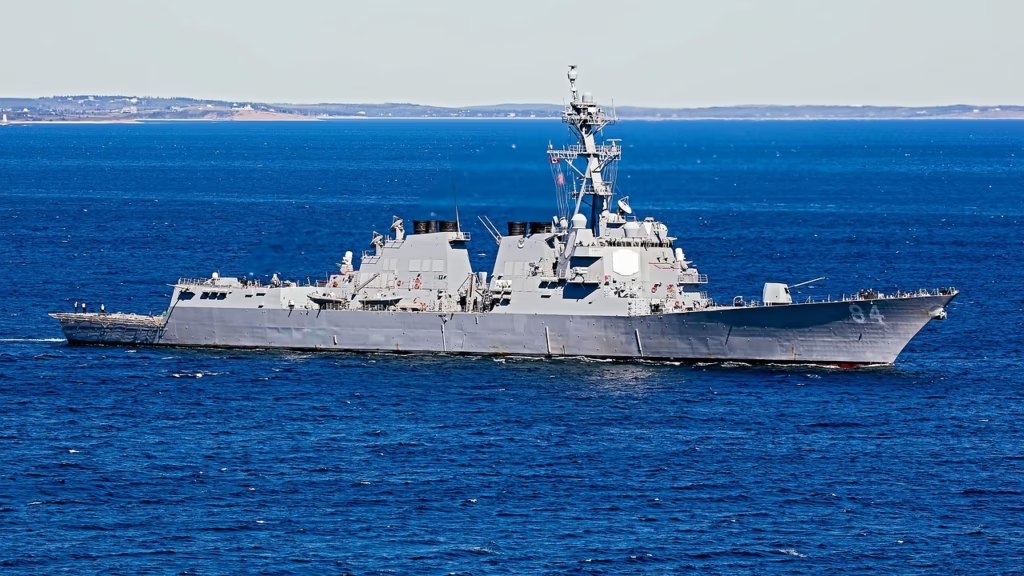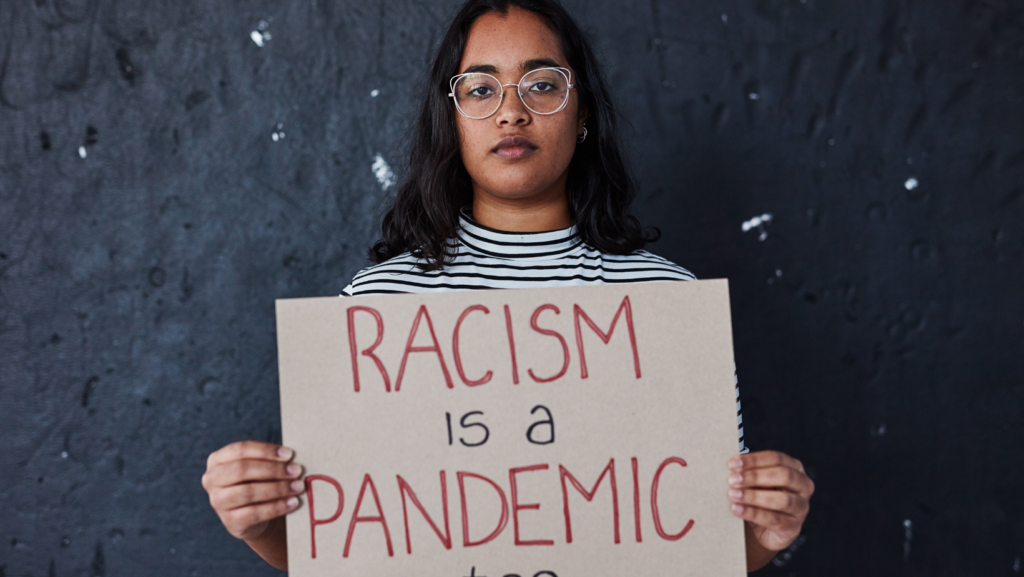1. Introduction: The Curse of Proximity
The Caribbean is a paradise. I have visited all the Caribbean countries. From the lush-green hills of Dominica to the ports of Trinidad, each is unique and beautiful in its landscape, people, and culture. The region has many challenges stemming from a Euro-American-centric system that sees it only as a means to building wealth for a few. This system fueled the case to support the stealing of lands of indigenous people, worsened by their omicide (attempted destruction of people, culture, land, memory), followed by the enslavement of African people, when sugar and cotton, bolstered by forced labor, were the primary means of acquiring wealth. The same is true today for a different, yet unseen resource. The Caribbean sits on the edge of the world’s largest oil reserves. That proximity has become a curse. American warships and even an aircraft carrier now patrol near Venezuela, framed as anti-drug missions but obviously serving a more insidious goal. They want control over the hemisphere’s energy routes. This new militarization is not about narcotics or democracy as they market to their American voters. It is about oil, the dollar, and empire.
For the small island states that depend on imported fuel and fragile tourism economies, this buildup is an existential problem. The U.S. claims to protect democracy in Venezuela while quietly squeezing Caribbean nations to abandon their energy partnerships with Caracas, the PetroCaribe Agreement. Washington demands subjugation masked as loyalty. In the void left by American neglect of small nations in its backyard until it needs to control them, Beijing stepped in and offered loans and development partnerships to Venezuela and the Caribbean. Meanwhile, Moscow offers weapons to Venezuela to protect itself against the Godzilla in the north. The region is forced to pick sides in a game it never asked to play and that it cannot win.
The sad truth is that the Caribbean has become collateral in a resource war disguised as humanitarian concern. The United States, facing internal decline and the rise of multipolar competitors, is rewriting its regional strategy. And as always, the smallest nations will bear the cost.
2. Venezuela’s Oil: The Prize America Never Stopped Wanting
Someone told me recently, “People don’t want what you give them. They want what you have.” The same is true for powerful nations. Venezuela’s 300 billion barrels of proven oil reserves have haunted U.S. planners for decades. Control over that crude means control over the global energy supply for the few elite, ultra-wealthy people, giving them money and power for generations. When Hugo Chávez took control of the oil for Venezuela, the people and its foreign policy, then used it to build Petrocaribe — an initiative that sold discounted oil to Caribbean allies — Washington saw this generosity as defiance. Petrocaribe helped small states survive volatile markets, making them less dependent on American-induced global instability. It represented independence from the U.S.-controlled energy architecture. Wealthy Americans bent on controlling that oil hated that.
Remember, today, a country cannot survive economically without trade. By 2017, sanctions had crippled Venezuela’s ability to export. More than 150 measures cut off its access to global banks and shipping insurers, causing GDP to collapse by nearly a third. The supposed goal was to punish corruption; the real result was to destroy a competing economic model. American energy companies could not tolerate a socialist-led oil state trading with China in yuan, not the all-mighty greenback, and offering fuel to the Caribbean on favorable terms.
When Petrocaribe died, so did regional energy stability. Blackouts followed in Haiti, Grenada, Antigua and Barbuda, and Jamaica. Fuel prices soared. The United States offered lectures on democracy and human rights, but no oil, no innovations in renewable energy, and no solutions to the hardships Caribbean countries face. The American Empire teaches discipline through deprivation.
3. The Weaponization of “Democracy”
Washington’s narrative machine knows its audience. It knows that American exceptionalism has most people brainwashed into thinking that the American way of life is the best. Therefore, every intervention is wrapped in moral language: defending freedom, stopping narcotics, and protecting human rights. It’s the classical storybrand approach, pitching them (Washington D.C. government—party is irrelevant here because they are all the same) as the heroes saving their people from evil terrorists, drug lords, and bad people from strange, unknown foreign lands. The same rhetoric justified the invasion of Grenada in 1983 and the coups in Haiti that followed. The strategy has not changed — only the vocabulary.
Venezuela is labeled a dictatorship; its leaders are accused of narco-terrorism. Yet the Drug Enforcement Administration’s own numbers show that less than ten percent of trafficked drugs to the United States originate from Venezuela. The real narcotics routes flow through Mexico and the Pacific. Their war on drugs seems misguided. Unfortunately, the American government deceives its people. The accusation serves a purpose: it reclassifies a political dispute into a security emergency, granting the Pentagon authority to act without congressional oversight.
Meanwhile, the United States remains silent on theocratic allies that behead dissidents or bomb civilians. Democracy, in this script, is selective outrage — a license to intervene where resources matter and ignore suffering where they don’t.
For Caribbean nations, neutrality becomes impossible. Refuse to denounce Caracas and risk being labeled complicit in tyranny. Align with Washington and surrender the principle of non-intervention that once defined CARICOM diplomacy. Basically, let the American military invade your country and take over, eroding what remained from the previous omnicide. Every island is now a pawn in a moral masquerade. With no real military might, no nuclear weapons, and, therefore, no credible threat, the region has little power against a bully empire like the U.S.A!
4. Petrocaribe’s Ghost
Petrocaribe was more than an oil deal. It was an act of regional solidarity. It was a signal that the empire did not rule the people it cared nothing about. Venezuela allowed member states to pay a portion of fuel costs up front and defer the rest over 20 years at 1% interest, with repayment options in goods or services. This kept hospitals running, planes flying, connecting the region, ferries moving, and electricity flowing across the islands.
When U.S. sanctions crushed Venezuela’s exports, the program collapsed. Caribbean nations suddenly had to buy fuel at market prices in dollars —again. The very currency Washington uses as an instrument of control —the very currency they print so much of —creates global inflation for those dependent on trading in it. The sanctions did not just target Maduro; they targeted every small state that once benefited from his oil diplomacy.
The result is visible across the region: budget deficits, rolling blackouts, and rising public debt. The Caribbean lost energy independence not because it failed, but because independence itself became intolerable to the empire.
5. The Caribbean as Collateral Damage
From colonialism to imperialism, small states have always lived under the shadow of external power. But today’s pressures are sharper. Guyana, newly wealthy from offshore oil, is caught in a border dispute with Venezuela over the Essequibo region. Trinidad and Tobago, rich in gas reserves, faces U.S. restrictions when negotiating cross-border energy projects with Venezuela. Eastern Caribbean islands, lacking resources, endure the fallout in silence. Their geography punished them.
Here is the cruel irony. The Caribbean is urged to uphold democracy while denied the economic autonomy that sustains it. Sanctions, naval exercises, and propaganda undermine the very stability Washington claims to defend. U.S. gunships bomb small craft boats in the Caribbean Sea under the guise of stopping drug trafficking. They show no evidence that the people they murder are drug traffickers. In any case, what happened to a civilized country having due process?
The risk is not hypothetical. The region is in danger. As global rivalry intensifies, the area could once again become a staging ground for external conflicts, as it was during the Cold War. America is sucking the Caribbean into a proxy war with China and Russia. The Caribbean’s “Zone of Peace” declaration is already being tested by the thunder of foreign U.S. fighter jets overhead.
6. The Real War: Oil and the Dollar
The video analysis “The U.S. and China Are Fighting Over Venezuela” on YouTube captures what policymakers rarely admit: the Venezuelan crisis is a front in the global struggle over energy control and monetary dominance.
For fifty years, the petrodollar system has guaranteed American supremacy by ensuring that oil trades are settled in U.S. currency. This arrangement sustains demand for the dollar, finances the U.S. deficit, and underwrites its military budget. When countries begin selling oil in other currencies, that leverage erodes. The value of the dollar against other major currencies falls.
Venezuela’s alignment with China, Russia, and Iran threatens that system. Beijing has loaned Caracas more than $60 billion, securing long-term access to oil paid for in yuan. Every barrel sold outside the dollar weakens U.S. financial control.
Thus, sanctions are not just punishment; they are a defense of a collapsing order. By cutting Venezuela off from the global banking system, the United States seeks to remind the world that rebellion has a price. But this strategy backfires. The harder Washington squeezes, the closer Venezuela moves toward China’s orbit, accelerating the very de-dollarization the U.S. fears. Destabilization of Venezuela and the contagion effect on other Caribbean countries will also mean more illegal immigrants looking to America as a way to solve their hardships.
7. The Failing Empire
American power is decaying from within. Infrastructure crumbles, politics polarize, and racial inequality festers. The fact is, the same drug trade they are pretending to fight, neglects that the decline of the empire is bolstering its demand. The wider the gap between the rich and poor, the further the middle class ends up in poverty, and the more demand there will be for drugs. Eroding health care, as the current Health Secretary is doing, means more legal pharmaceutical medicines for the population, as everyone tries to solve illness with medication rather than improve lives. The country that once promised freedom now boldly moves towards authoritarianism at home while preaching democracy abroad. A political class funded by billionaires turns every foreign crisis into a performance for domestic consumption.
This decline fuels aggression. Empires lash out when they sense irrelevance. It lashed out politically when white people realized they would be the minority by 2050, by electing people to public office, who intelligent people would not trust around their children. They deploy warships to prove vitality, sanctions to prove control, and moral rhetoric to disguise decay. Yet the world sees it all. Caribbean citizens watch live news broadcasts about mass shootings, voter suppression, and polluted water in U.S. cities, lynchings labelled as police brutality by “bad apples,” and wonder what moral authority remains. People in America use guns to kill their own citizens, and their government protects the gun companies over them. The world sees all this and knows the United States of America is a failed nation.
The more Washington bullies for obedience, the less credible it appears. The Caribbean remembers enslavement, CIA-orchestrated coups, and IMF austerity. It recognizes colonial behavior when it sees it. The empire is losing the story.
8. China, Russia, and the Multipolar Trap
Washington frames Chinese and Russian presence in the region as a malign influence. But for many Caribbean governments, these partnerships are lifelines. China builds ports, roads, airports, and hospitals without demanding regime change. Russia supplies fertilizer and medical aid when Western banks refuse credit. These relationships are pragmatic, not ideological.
Still, dependence on any external power carries risk. Multipolarity offers opportunity but also new competition. The Caribbean’s challenge is to navigate this environment without becoming a pawn in another Cold War. That means insisting on diversified partnerships, transparent deals, and debt terms that do not surrender sovereignty. That means it must have its own development plan designed by its own people.
9. Lessons from Other Proxy Battlegrounds
History is littered with the carnage of other proxy wars. Afghanistan’s decades of occupation showed what happens when foreign patrons fund endless wars under noble slogans. Yemen revealed how humanitarian crises become bargaining chips in regional power games. Rwanda demonstrated how quickly instability spills across borders when the world treats small nations as expendable.
The Caribbean must study these precedents. It must invest in early-warning diplomacy, global appeal, and marketing to ensure the conflict is seen from their perspective; regional intelligence sharing; and civilian protection measures before conflict erupts. Sovereignty today is not defended by armies but by information, coordination, and moral clarity.
10. The Road Ahead: Sovereignty, Solidarity, or Subjugation
Caribbean leaders have three choices. They can cling to individual diplomacy, begging favors from competing empires, and get picked off one by one. They can submit quietly to Washington’s coercion, accepting the role of compliant periphery. Or they can build a united front rooted in collective bargaining, shared energy policy, and strategic neutrality.
Sovereignty demands cooperation. A joint maritime monitoring system could track foreign military activity. A regional energy policy could revive aspects of Petrocaribe by coupling it with an expansion of renewable energy sources. A CARICOM-led humanitarian and disaster-response corps could prevent foreign powers from using “aid” as leverage.
Solidarity requires the diaspora’s voice. Caribbean intellectuals and migrants across North America and Europe must expose propaganda and advocate for non-aligned development. Silence is complicity. Write articles and speak on themes similar to this essay.
Subjugation is the default if nothing changes. If Washington destabilizes Venezuela through war or economic collapse, the resulting refugee flows, fuel shortages, and financial contagion will devastate the islands. The Caribbean will once again pay the price for someone else’s empire. Remember, as well, tourists don’t visit war zones.
11. Conclusion: Writing from the Margins, Speaking to Power
I write this as someone who left the region but never escaped its gravity. From afar, I watch American pundits reduce our islands to strategic dots on a map. I hear them speak of “failed states” and “security partners” as if we are not intelligent people. I see the old pattern of colonialism with its arrogance dressed in new jargon and supported by U.S. taxpayers and social media.
The Caribbean has survived genocide of indigenous people, enslavement of both indigenous and African people, indentureship, coups, and debt traps. It can survive this, too. But survival is not justice. Justice means reclaiming agency over our resources, our alliances, and our story.
The U.S.–Venezuela conflict is not just a battle for oil; it is a battle for narrative control. And the Caribbean must refuse to be written out of its own future. Our task is to transform vulnerability into vision. I hope we turn proximity to the falling empire into a vantage point for resistance. The sea that once carried chains of bondage can carry a different type of chain —one of solidarity, instead.
Recommendations
Diplomacy Actions – Practical Preparations
Strengthen CARICOM unity and formalize a doctrine of non-intervention and regional neutrality. Develop joint maritime and air-space monitoring, using shared satellite data and drones as planned components.
Engage the UN and OAS to oppose regional militarization and defend Petrocaribe-style energy cooperation. Expand renewable-energy infrastructure and regional fuel reserves to buffer supply shocks. Every home should have solar power, and the region should work to develop its own production and innovations in these renewable technologies. Food security is vital. The area should develop a robust food policy to become food-independent from external sources. That also means developing regional transport — air and sea — to move food, materials, and people across the region, fostering trade and resiliency.
Facilitate dialogue between the U.S. and Venezuela through neutral Caribbean mediation. Create civil defense training and crisis communication networks to manage disinformation and displacement.
Demand environmental guarantees from multinational oil companies operating near Caribbean waters. Build humanitarian-response capacity for potential refugee or energy crises.
Sources and Further Reading
- US warship docks in Trinidad and Tobago fueling concern — Yahoo News (2025)
- Euronews: U.S. presence near Venezuela (2025)
- Parstoday: Venezuela’s Black Gold and U.S. pressure motives (2025)
- Discovery Alert: U.S.–Venezuela oil conflict and global markets (2025)
- OC Index: Criminality in Trinidad and Tobago (2025)
- CSIS: Trump’s War on Drug Cartels or Invasion of Venezuela? (2024)
- Kaieteur News: Exxon drilling risks to Caribbean islands (2023)
- Catalyst McGill: Guyana’s oil boom (2024)
- Antigua News: The Caribbean’s Zone of Peace Meets a Major Hurdle (2025)
- New York Times: Bodies Wash Ashore After U.S. Strike in Trinidad (2025)
- The U.S. and China Are Fighting Over Venezuela — YouTube Analysis (2024)
- Caribbean Under Siege Framework Notes (2025)



